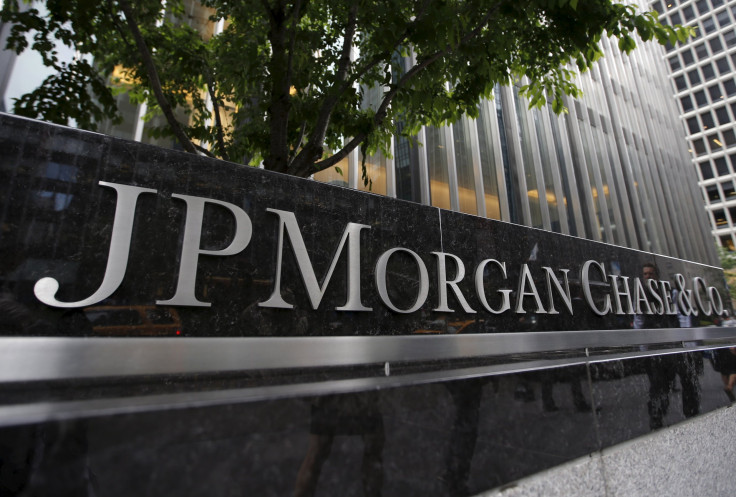JPMorgan Quarterly Profit Falls 6.7%

JPMorgan Chase & Co, the biggest U.S. bank by assets, reported a drop in quarterly profit -- its first in five quarters — as costs to cover sour loans to troubled oil companies rose and revenue from investment banking declined.
But both earnings and revenue beat analysts' lowered expectations, helping lift the shares of the bank and those of its rivals in premarket trading on Wednesday.
JPMorgan is the first U.S. bank to report results for what is generally being seen as the banking industry's worst start to a new year since the 2007-2008 financial crisis.
And its results may be as good as it gets for the banks in the quarter, analysts said.
"We expect (the) results will be best in class and may be a rare example of a bank stock this quarter where consensus estimates could remain steady post results," Goldman Sachs analyst Richard Ramsden wrote in a client note.
Banks around the world have been hit by a slide in commodity and oil prices, a slowdown in China, near-zero interest rates, mounting regulatory costs and hefty capital requirements.
Stock market activity picked up in March, but that was not enough to make up for weak trading volumes during a volatile January and February.
Industry-wide, investment banking fees fell 29 percent in the first three months of 2016, the slowest first-quarter since 2009.
JPMorgan's investment banking revenue slumped 24.5 percent on lower debt and equity underwriting fees even though the bank topped the global league table with $1.22 billion in fees during the quarter, according to Reuters data.
Financial stocks were the worst performers in the S&P 500 index in the quarter, falling 5.6 percent compared with the overall index's rise of 0.8 percent.
JPMorgan's stock fell 10.3 percent in the period - but the shares of its five big U.S. rivals fell by even more.
JPmorgan shares were up about 2.6 percent in premarket trading, while those of Bank of America Corp and Citigroup were up 1.8 percent and 1.9 percent respectively.
Investors and regulators have been concerned that depressed oil prices over the past year and a half have put not only corporate borrowers at risk but is leading to job losses that threaten the overall economy, adding to banks' bad loans.
The bank may need to boost its provisions for oil and gas loans by $500 million this year, Chief Financial Officer Marianne Lake said on an analysts' call, taking total such provisions to about $1 billion.
But JPMorgan Chief Executive Jamie Dimon struck a positive note overall, saying "the U.S. consumer remains healthy and consumer credit trends are favorable" and that he did not expect a recession in 2016.
JPMorgan's net income fell 6.7 percent to $5.52 billion in the first quarter ended March 31. The bank earned $1.35 per share, handsomely beating the average estimate of $1.26, according to Thomson Reuters I/B/E/S.
Total revenue fell 3 percent to $24.08 billion, but beat the average estimate of $23.40 billion. Revenue from fixed-income trading - often JPMorgan's most volatile business - fell 13.4 percent to $3.60 billion.
Fourteen of 29 analysts covering the company lowered their earnings per share estimate by an average 1.5 percent in the last 30 days, according to Reuters data.
Provision for credit losses nearly doubled to $1.82 billion, mainly due to reserve increases related to the oil and gas and metals and mining sectors.
Bank executives had warned in February that they expected to shell out $500 million more in provision for expected losses on energy loans.
Total non-interest expenses fell 7 percent to $13.84 billion, helped by lower legal costs.
Like other U.S. banks, JPMorgan has resorted to aggressive cost controls to underpin earnings over the past several quarters as revenue growth remains sluggish.
Bank of America Corp and Wells Fargo & Co, the second and third-biggest U.S. banks, report on Thursday.
© Copyright Thomson Reuters 2024. All rights reserved.




















